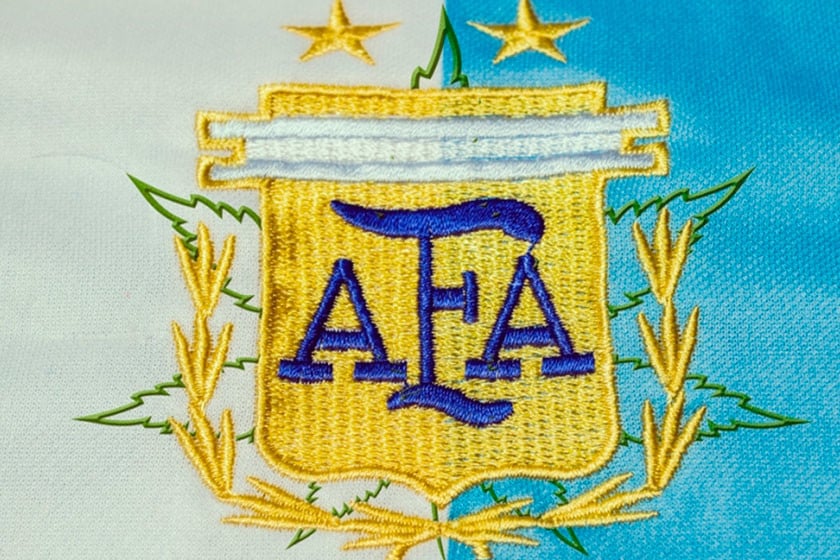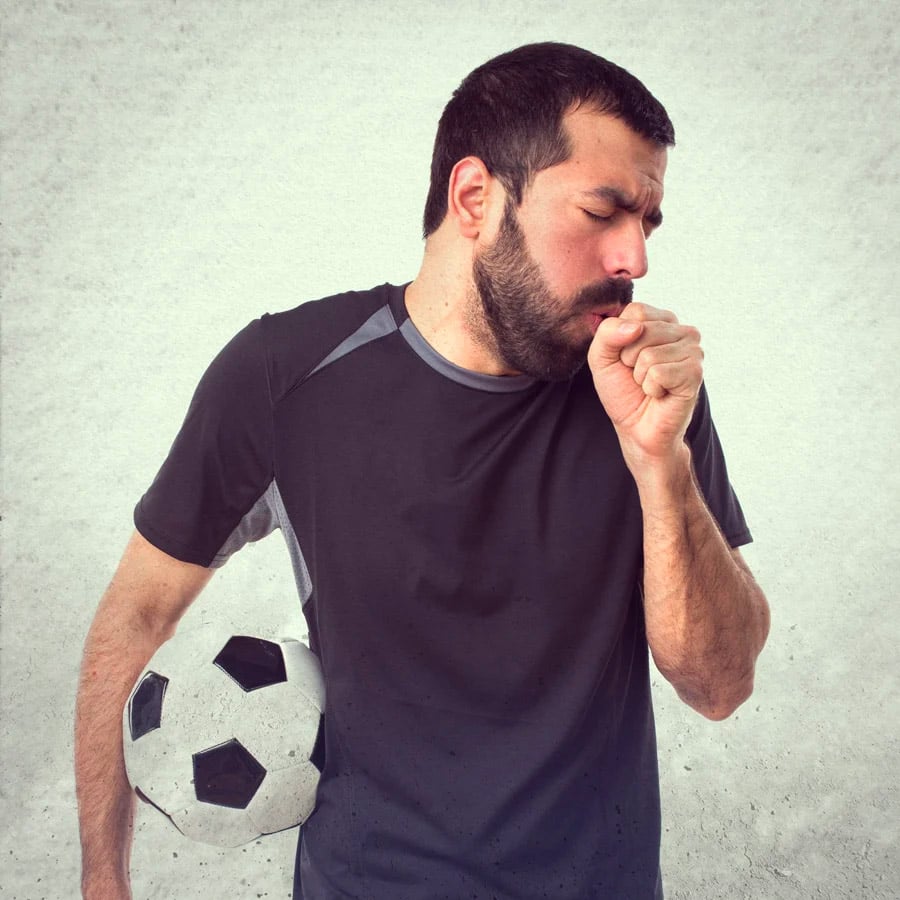.

Messi Leads Argentinian Protest Over Alleged Drug Use By Teammate
The question of whether marijuana use impedes or improves athletic performance is becoming an even more contested subject after Argentinian national soccer team starts protest over the alleged use of pot by one teammate.
Lionel Messi is leading a team boycott of the Argentinian national soccer team against the press after team-mate Ezequiel Lavezzi was accused of using marijuana. The entire 23-man squad appeared before the press last week after a 3-0 win over Columbia in a World Cup qualifying match, and refused to answer any other questions.
Last week’s game was the first of five qualifying matches in the South America group to win a place in a playoff position against Russia in 2018.
The team has taken this approach after an Argentine radio journalist – Gabriel Anello - suggested on Twitter that Lavezzi had been caught smoking cannabis ahead of the game during training camp. He was not included in the squad that defeated Columbia.
As Anello tweeted: “Lavezzi is left off the substitute’s bench ... because of the joint that was smoked last night in the camp? I’m asking ... just asking.”
While this boycott has not been caused solely by the marijuana use allegation – the team has apparently been repeatedly criticized during their attempts to qualify for the World Cup – it appears to be the match which has finally lit the fire. Argentina was a runner-up in the Cup two years ago. The criticism also comes on the heels of a 3-0 defeat by Brazil some weeks ago, their second consecutive loss, and two draws.
According to Messi[1]: “We know that most of you guys don’t play that game of disrespect. We can be criticized if we lose, or win, or if we play well or badly. But this is getting into personal lives. If we don’t put a stop to it now, we’ll never stop it.”
Lavezzi has now said he would take legal action against the journalist. Tweeting on November 15, he said “I have hereby communicated that I’m going to initiate legal action[2] against Gabriel Anello for his false declarations against my person, for the serious damage that they have caused to my family and in my work”.
DOES CANNABIS USE ENHANCE OR IMPAIR ATHLETIC PERFORMANCE?
At the heart of this latest furore over professional athletes use of any drug – including cannabis – is whether use of the drug impairs or enhances overall athletic performance.
Despite the reaction by Argentina’s[3] team over negative performance being linked to cannabis use, it may in fact be the case that the opposite is true. In fact, the evidence appears to be shifting in favour of cannabis actually enhancing performance. According to Gordy Megroz[4], writing in Outside Magazine last year, eating cannabis seemed to actually help his skiing – and that he actually felt “invincible”.
This is because of a very simple scientific explanation. There are cannabinoid receptors located throughout the brain and body. When THC interacts with these receptors, it can impact anxiety levels - in either direction. That is what makes some people feel more confident. That said, many people also report increased anxiety when smoking marijuana. It appears to depend on both the kind of marijuana used and individual metabolism.
 That also is why the World Anti-Doping Association has bans on competing while stoned[5]. Marijuana can increase airflow to the lungs by acting as a bronchodilator that decreases resistance in air passages.
That also is why the World Anti-Doping Association has bans on competing while stoned[5]. Marijuana can increase airflow to the lungs by acting as a bronchodilator that decreases resistance in air passages.
However, there are many other reports of athletes having impaired judgement after toking up, but it may well be, that muscles are more resistant to both injury and heal faster. People who have been subjected to traumatic head injury, for example, and then immediately treated with marijuana, end up with less debilitating injuries, because of less damage to the brain.
The answers to all of these questions, therefore, are not set in stone, simply because there has not been enough real evidence – one way or the other. The other issue of course, is the effect of cannabis residue in the body. An athlete may smoke a joint well before competing. How long such effects stay in the body – beyond evidence of THC – is a very valid question.
A NATURAL RUNNERS HIGH
The so-called “runner’s high” is caused in part by natural endorphins. The brain releases natural opioid chemicals during exercise. It also releases endogenous cannabinoids – called endocannabinoids. Unlike endorphins, these chemicals are actually able to cross the blood-brain barrier and act on the same receptors that THC is able to stimulate when consumed in marijuana. This in turn appears to create an effect, particularly in endurance runners, which can increase performance. After the workout is over, it can soothe muscle ache. Weight lifters also report that post-exercise soreness and muscle ache is drastically reduced.
MORE STUDIES ARE NEEDED
For all those who claim that marijuana actually helps their athletic performance, there are also those who claim that marijuana use is actually detrimental to the same. This starts with reaction time, hand-eye coordination and perception. Such effects can last up to 36 hours after usage – at least in healthy subjects.
It is also unclear if marijuana use amplifies or diminishes muscle growth. Because long-term use of marijuana appears to lower the receptiveness of CB1 receptors similar to blood sugar swings leading to insulin resistance, THC might impair muscle building by interrupting a signalling pathway required for protein synthesis. There is also one study that seems to show that marijuana might impede the secretion of growth hormone. That said, the study[6] used extremely high doses of THC (210mg per day for two weeks) to come up with this result.
Marijuana may also affect hormones – but again, it is not clear exactly how and if this is necessarily a negative. One study was found to suppress the hypothalamic-pituitary axis (HPA) in rodents, but human studies suggest a variable effect on this axis (which regulates endocrine regulation[7] and overall energy balance).
It also may raise cortisol – the hormone associated with stress. This might explain the paranoia that some users feel, but again, it is unclear, particularly because other studies show that cortisol response is blunted in chronic cannabis users.
Overall – in sum, it is clear that marijuana can in fact have both positive and negative health effects for those who are either athletic or even professional athletes. That said, until further and more definitive studies are actually conducted in a definitive way the answers are unclear.
- Lionel Messi leads Argentina in media boycott to back Ezequiel Lavezzi after drug allegations | Daily Mail Online http://www.dailymail.co.uk
- Ezequiel Lavezzi takes legal action over cannabis claim | Sporting News http://www.sportingnews.com
- Argentina Moves Forward On Legalization - RQS Blog https://www.royalqueenseeds.com
- Can Pot Make You a Better Athlete? | Outside Online http://www.outsideonline.com
- Why should Cannabis be Considered Doping in Sports? https://www.ncbi.nlm.nih.gov
- Depression of Growth Hormone and Cortisol Response to Insulin-Induced Hypoglycemia After Prolonged Oral delta-9-tetrahydrocannabinol Administration in Man - PubMed https://www.ncbi.nlm.nih.gov
- http://press.endocrine.org/doi/full/10.1210/er.2005-0009

































